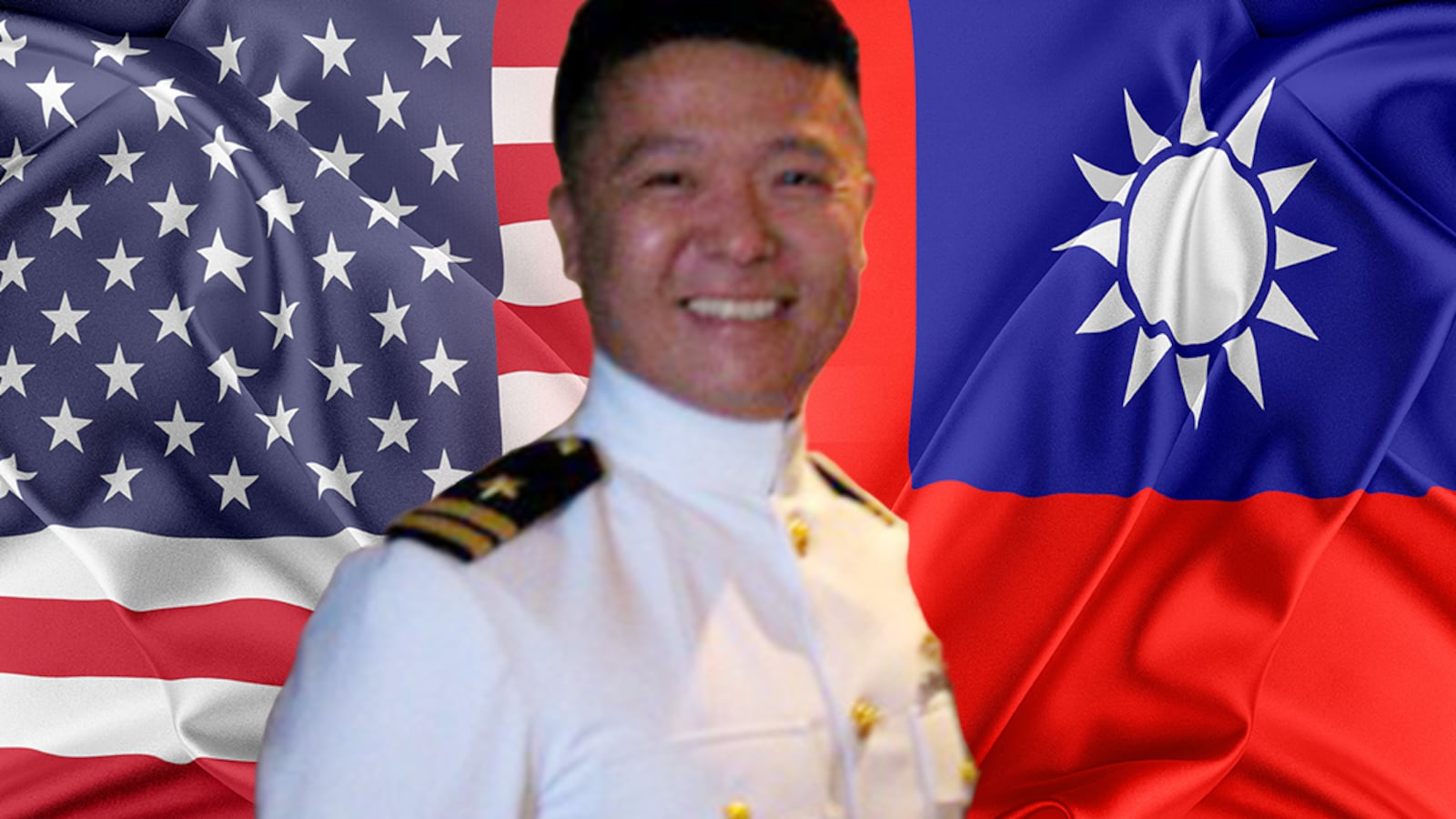A U.S. Navy sailor charged with espionage didn’t provide military secrets to a foreign government, but rather to an FBI informant who was posing as a Taiwanese official, military officials revealed Thursday.
The latest twist in the case against Lt. Cmdr. Edward Lin, 39, came as military officials allowed reporters to listen to a recording from a military pretrial hearing held on April 8. There, prosecutors alleged that Lin was the target of a sting operation that led to his arrest and two-day interrogation at the Honolulu International Airport last September.
Prosecutors said that during questioning, Lin confessed to being a spy. Lin’s job, working in and around military reconnaissance aircraft, gave him access to information about sensitive equipment that the U.S. uses to spy on its adversaries.
Lin’s attorney vigorously rebutted the charges and said that his client had been denied his right to speak with a lawyer at the time he was arrested and questioned. The Pentagon Thursday played an 80-minute section from the pretrial hearing, known as an Article 32. But they left out at least a half-hour that officials said was classified.
The recording sheds new light on Lin’s case, but it also raises several unanswered questions. And prosecutors offered no explanation of how Lin, who once spoke in uniform about fulfilling his dreams of becoming a U.S. citizen, had turned from a model sailor to a spy.
In the recording, the Navy alleged that as Lin met with the FBI informant from Aug. 25 to Sept. 9 of 2015, he shared classified information. It’s not clear where the two met or what Lin allegedly divulged. The men spoke to each other in Mandarin.
A military prosecutor, Navy Cmdr. Johnathan Stephens, presented nine “disks” that he said contained recordings of the meeting and of Lin’s interrogation. “The beauty of this is you get to watch the entirety of the event,” Stephens told the presiding judge, Cmdr. Bruce Gregor.
Lin was arrested at the Honolulu airport on Sept. 11, interrogated for 11 hours over the course of two days, and then confessed, the prosecution said.
But Lin’s lawyer, Larry Youngner, said his client was deprived of legal counsel during questioning. Surrounded by FBI agents, Lin was told he had right a lawyer, and when he asked if he had any questions, he responded, “Yea, I got questions,” only to be ignored by the agents, Youngner said.
The military also said classified documents were found in Lin’s home. But Younger countered that these documents could also be found online, and that a notebook recovered from Lin’s home also contained nothing classified.
“We believe there is yet to be proof that there was classified information in that notebook” found at his home, Younger said.
Lin’s family said this week that his defense attorney has been unable to obtain all the evidence that the military believes proves Lin’s guilt.
Youngner didn’t deny that Lin spoke to the person who turned out to be an informant. But he insisted that Lin merely repeated “talking points” the Navy had given him to use when dealing with Taiwanese officials.
It wasn’t clear under what auspices Lin believed that the two were meeting. But Youngner stressed that his client had been motivated by a sense of duty.
“How many times does he say [on the tapes], ‘I was trying to help the United States,’” Younger told the judge, adding, “There is no intent or attempt to aid a foreign government.”
As The Daily Beast first reported, there are signs that the case against Lin could fall apart.
Lin was held in pretrial detention for eight months after he allegedly confessed. But he was not charged until April. The military has offered no explanation for why Lin was held for so long after his interrogators had apparently obtained a confession.
Youngner also raised questions about the accuracy of the translation of the conversation between Lin and the informant, noting that there are multiple Mandarin dialects.
Neither the prosecution nor the defense called witnesses. Lin was at the hearing and answered questions in a firm voice, usually saying either: “Yes, sir” or “No, sir” to the judge’s questions.
In addition to charges of espionage and attempted espionage, the military alleges that Lin engaged in prostitution (on both sides of the exchange) and adultery. Those charges are based on the military’s review of his work emails that began after Lin’s alleged confession at the airport. The emails date back to 2012.
Lin is one of only a handful of service members charged with espionage over the past three decades. But he may the first to launch a website seeking funds for his defense.
So far, prosecutors are pushing ahead. Gregor, the judge in the preliminary hearing, recommended the case go forward. Lin’s case now is before Adm. Philip S. Davidson, the commander of U.S. Fleet Forces, who is weighing whether to proceed with a court-martial against Lin. If he does, the military will likely face significant challenges in bringing its case, given how much of it appears to rely on classified information not easily introduced in a public trial.
There is no deadline for Davidson’s decision.






